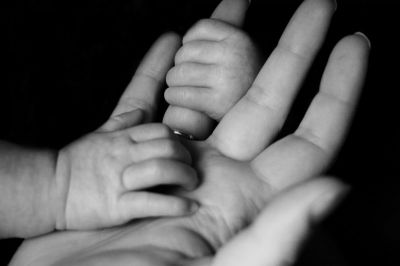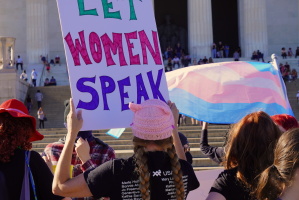Sexual violence should not be used as a rhetorical weapon

Last month, in the Journal of American Medicine, the medical director of Planned Parenthood Montana claimed that 64,565 babies had likely been conceived in rape in the 14 states where abortion is restricted since the Supreme Court’s Dobbs decision. The claim was put forth as the results of a formal study, though the authors admit that “no reliable state-level data … are available,” and their numbers were “estimated.”
Unsurprisingly, media outlets quickly reported on the study as if it were evidence of a national emergency … a particular kind of national emergency. Without exception, every major news outlet framed this story as not about rampant sexual crime, but about abortion access. For example, CNN announced: “Tens of thousands of pregnancies have resulted from rape in states where abortion is not a legal option, researchers estimate.”
Theirs is a disturbing angle to take on this story, if the numbers are accurate.
The authors of the study estimated that 12.4% of rapes result in pregnancy. If accurate, that means around 520,000 women were raped in just 14 states over a period of just 18 months. That is almost five times the number the FBI estimated for the entire nation during 2022, a number that appeared to be trending downward from 2021.
If accurate, shouldn’t the headline be that the United States, or at least the 14 states with abortion restrictions, are facing an unprecedented crisis of sexual violence? In other words, “abortion access” is nowhere near the major problem revealed by this report. But of course, it’s not.
More troubling, however, is how exaggerated these numbers are. Michael New, a senior associate scholar at the Charlotte Lozier Institute, called the study “one of the worst and most misleading pieces of advocacy research that I have ever encountered.” In addition to suggesting that an astronomical number of rapes occurred in certain states, the piece used inflated estimates of rape-related pregnancies. Other medical research suggests that pregnancy occurs after only about 5% of rapes, not 12.4%.
It’s difficult to imagine that this level of mathematical malpractice and journalistic dereliction is unintentional. The most likely explanation is that rape is considered a compelling argument for unrestricted legal abortion. This is part of the 50-year legacy of Roe v. Wade. It has even corrupted our ability to deal with the realities of sexual crime. It’s now acceptable to treat victims as pawns to justify pro-abortion political stances.
It’s far more likely that if there is a line from legal abortion to rape, it runs in a different direction. Fifty years of legal abortion-on-demand has been among the most significant factors that have enabled the myth that sex is a casual, physical act with no moral, spiritual, or emotional implications. Roe enabled both men and women, but especially men, to abdicate personal responsibility for any children they create. Also, the normalization of so-called “casual sex” made forced sex harder to define and easier to deny. Abortion-on-demand doesn’t help victims of rape. Rather, it emboldens and enables perpetrators.
As this research and reporting made clear, rape is perversely useful to those who wish to expand abortion access. But using rape in this way could have unintended consequences. For example, it may desensitize some into thinking of rape as a social given, a stubborn part of communal life that we just can’t do anything about. In fact, how else can you explain anyone who would think that a report alleging such a shocking spike in sexual crime in 14 states is really a story about abortion and not crime?
Roe, as Ryan Anderson and Alexandra DeSanctis described, really did “poison everything.” At the very least, it distorted the worldview of a nation in profoundly confused and destructive ways.
Originally published at BreakPoint.
John Stonestreet serves as president of the Colson Center for Christian Worldview. He’s a sought-after author and speaker on areas of faith and culture, theology, worldview, education and apologetics.




























